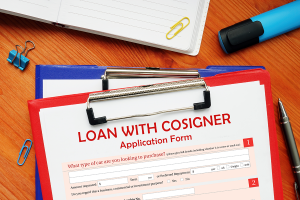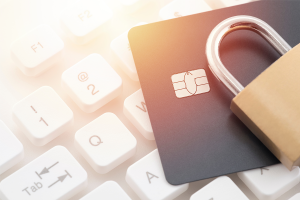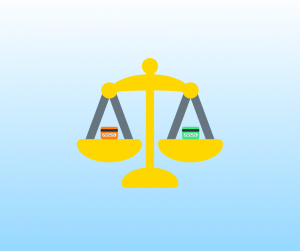How to Grow a Thin Credit File

Line of Credit—Essential Guide to Expectations & Realities
09/27/2024
Unlock the Power of Home Equity Loans—Essential Guide
10/07/2024 A thin credit file can be problematic. Although your finances may be completely stable, a thin credit file can make it challenging to access financing for major purchases when you need it.
A thin credit file can be problematic. Although your finances may be completely stable, a thin credit file can make it challenging to access financing for major purchases when you need it.
The good news is that it’s completely possible to grow a thin credit file. Let’s take a closer look at the implications of a thin credit profile. Plus, find out how you can take action to grow yours.
What Is a Thin Credit File?
A thin credit file means that your credit history isn’t very robust. Instead of having multiple credit accounts and a long history of on-time payments, your credit reports don’t offer much information to potential lenders.
Many consider having fewer than five credit accounts a relatively thin file. Your credit file may also be considered thin if no activity is reported for the last three to six months.
Ultimately, this lack of information can make it difficult for lenders to accurately assess your creditworthiness. If a lender cannot judge your creditworthiness with the help of credit reports and scores, you will struggle to find financing opportunities.
What Does It Mean When Your Credit File Is Thin?
So, why might you have a thin credit file? Here’s a look at the most common reasons why you might have a thin credit file.
First, if you are young, it’s likely you have a thin credit file. Essentially, you haven’t had enough time to build up a robust collection of credit accounts. As you age, you have more opportunities to add accounts to your credit reports.
Another common reason for a thin credit file is if you’ve recently moved to the United States. Although you may have had excellent credit in your homeland, you’ll need to re-establish a credit history within the United States. As you open credit accounts within the United States, your credit file will grow.
Finally, those who prefer to pay in cash or haven’t used their credit accounts recently have a thin credit file. Although you may manage your personal finances well, potential lenders cannot determine how you will manage credit unless you’ve regularly used credit accounts. With that, those who prefer to pay in cash are often at a disadvantage when pursuing financing for a major purchase.
If you have a thin credit file for any reason, it’s still possible to grow that file over time.
Is Having a Thin Credit File Bad?
It’s important to note that a thin credit file isn’t the worst-case scenario. In fact, those with a thin credit file are in a better position than those with bad information on their credit reports.
A thin credit file makes you somewhat risky in the eyes of a lender. But those with bad information on their credit reports that results in poor credit scores are definitely high-risk borrowers for lenders.
However, having a thin credit file can still make it difficult to obtain financing or access services that require a good credit score. Let’s explore how having a thin credit file can impact you.
Can You Buy a House With a Thin Credit File?
Buying a home might be the biggest purchase you ever make. With the U.S. median home price topping out at $412,300 in the second quarter of 2024, it’s not surprising that most homebuyers need to take out a mortgage to finance this large purchase.
Although it’s possible to get a mortgage with a subprime credit score, the best terms and interest rates are reserved for those with high credit scores. If you don’t have a credit score at all due to a thin credit file, it can be extremely challenging to obtain a mortgage.
For those with a thin credit file, the FHA mortgage is likely your best option. But you’ll open the door to more attractive financing opportunities when you grow your credit file.
Can You Get a Car Loan With a Thin Credit File?
Car ownership is undeniably expensive. If you want to purchase a new car, you’ll likely need to take out a loan to do it. In 2024, 80% of new car purchases were made with the help of financing.
If you want to purchase a vehicle with a thin credit file, it’s possible. But those with thin credit often face extremely high interest rates and extensive fees. The costs of subprime financing add up quickly. Ultimately, these costs can have a major impact on your financial future.
Although it’s possible to get a car loan with a thin credit file, you’ll be able to save a significant amount of money on financing costs if you have healthy credit scores.
Can You Get a Credit Card With a Thin Credit File?
It’s possible to get a credit card with a thin credit file, but your options will be limited.
In most cases, consumers with a thin credit file will need to take out a secured credit card. A secured card requires an upfront cash deposit.
The upfront cash deposit can be a dealbreaker for some, but unfortunately, unsecured credit card issuers may be unwilling to work with those who have thin credit files.
Other Impacts of a Thin Credit File
The impacts of a thin credit file don’t end with your financing opportunities. For better or worse, credit scores are used for many other reasons. A low credit score resulting from a thin credit file can lead to uncomfortable consequences throughout your life.
A good example of a thin credit file impacting your lifestyle is when you apply for an apartment. Many landlords look at your credit history to make sure you are a creditworthy renter who will likely make on-time rent payments. If you have a thin credit file, it can be difficult to qualify for an apartment.
Another impact is an increased deposit requirement for cellphone and utility plans. Most cellphone companies and utility providers will check your credit before starting service. If you have a thin file, the company may compensate for that perceived risk by increasing your required upfront deposit.
How to Fix a Thin Credit File
It’s clear that a thin credit file can be a very expensive issue. Not only can the lack of a credit file make it difficult to get financing, but you’ll face higher interest rates if you are able to obtain financing.
Even if your finances are otherwise stable, a thin credit file can have a big negative impact on your life. Essentially, allowing your credit file to remain thin can cost you big over your lifetime. With that, it’s a smart move to fix your thin credit file as soon as possible.
Here are some strategies you can implement to fill out your credit reports.
Apply for a Secured Credit Card
A secured credit card is a great place to start if you want to build out a thin credit file.
Secured credit cards require an upfront deposit. The initial deposit amount will be tied to your available credit limit. If you don’t make your credit card payments, the lender has the right to keep your deposit. With this safeguard in place, lenders are more willing to offer secured credit cards to those with an unproven credit history.
As you use your secured card and make payments, the credit card issuer will report this credit account activity to the credit bureaus. In order to make the most of this opportunity, seek out a secured credit card issuer that reports to all three of the major credit bureaus.
If you make consistent on-time payments, that should build out positive information on your thin credit report. But if you don’t make on-time payments or otherwise mismanage your secured card, you could end up hurting your credit scores.
Take Out a Credit-builder Loan
A credit-builder loan is a relatively unique product specifically designed to help you build your credit file.
Unlike a traditional loan product, you won’t have any access to funds right away. Instead, you’ll start making regular monthly payments as soon as you take out the loan. The lender will put the principal of the loan into an earmarked savings account or Certificate of Deposit (CD). The interest portion of the payment will stay in the lender’s hands.
At the end of the loan term, you’ll receive a lump-sum principal amount from the designated savings account. But you’ll need to make regular on-time payments to unlock the balance.
Throughout the credit-builder loan term, the lender will report your payment history to at least one of the three credit bureaus. Again, it’s a good idea to find a credit-builder loan that offers reporting to all three credit bureaus to get the most value out of this opportunity.
For those that make on-time payments, you’ll have positive information added to your credit reports. Additionally, you’ll have access to a tidy sum of savings at the end of the loan term.
Want to learn more about credit-builder loans? Check out our full piece.
Add Alternative Data to Your Credit Report
If you do have a history of on-time payments with alternative financial accounts, then it’s possible to add this data to your account.
With the help of a specialized service, you can have information about your current bill-paying habits added to your credit report.
For example, Experian Boost can help you get credit for payments made to your phone, utility, or streaming service bills. Other services like RentTrack and Cozy can help you get credit for making on-time rent payments.
Credit Countdown Video: How Experian Boost Works and Why It Can Improve Your Score
Watch the video below to learn how Experian Boost can potentially increase your credit score from credit expert John Ulzheimer.
Alternative credit data isn’t a silver bullet. But if you are consistently paying your bills on time, your credit score should see a boost when this additional data is added to your credit report.
Find a Cosigner
If you have a need for a good credit score in the near future, some of these credit-building options won’t help you fast enough. But there are other options for fast credit-building. You can seek out a cosigner that is willing to vouch for your creditworthiness.

For example, let’s say that you want to take out an auto loan to buy a car. If you have a close family member or friend who has good credit, it may be worth approaching them to co-sign the loan with you. Essentially, a cosigner will be on the hook for the loan if you aren’t able to keep up with the payments.
Although asking around for a cosigner comes with interpersonal risks, the right person could be willing to help you out. When a cosigner has good credit, you can expect to unlock better terms and interest rates.
The Bottom Line
A thin credit file can make managing your finances more difficult. Without access to attractive interest rates, those with a thin credit file will pay more to access financing. Plus, a thin credit file can make it difficult to find an apartment and more expensive to open basic utility accounts.
Want to start building up your credit file? Explore the options we covered in this article, including secured credit cards, credit-builder loans, alternative credit data, and co-signing. With consistent good credit habits, you’ll see your credit files and scores grow over time.








